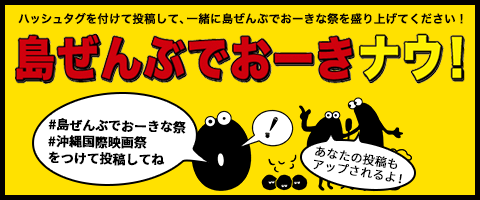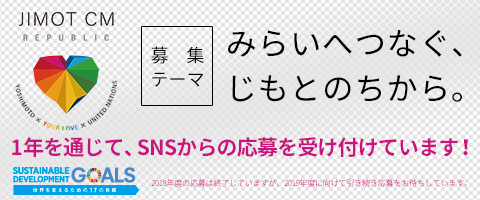Report2018.04.21The breathtaking Born Bone Born moves audience
On Saturday evening April 21, the third day of the Okinawa International Movie Festival, people poured into a theater at the Mihama 7-plex in Chatan town, Okinawa, for the Japan Premiere of the stunning film Born Bone Bone (called Senkotsu in Japanese). This feature film by director Toshiyuki Teruya is based on his short film, which picked up awards at the Short Shorts Film Festival and the Skip City International D-Cinema Festival, both in Japan. This feature has been invited to screen at the 40th Moscow International Film Festival later this month and is a monumentally powerful work.
It depicts the ancient Okinawan ritual of washing the bones of the deceased on the 4th anniversary of their death to send the departed off to the next world. The film effectively draws the nexus between life and death using the living tradition of bone washing, which used to be common throughout Okinawa but is not confined to a few islands.
The story revolves around the Shinjo family, traditionally based in Aguni village on the remote Okinawan island of Aguni. The children, who have left, gather back on the island to carry out the sacred bone washing ceremony. Emiko, their mother, passed 4 years earlier. Her elderly husband Nobutsuna (Eiji Okuda) blames himself for her death and has become a hopeless alcoholic. Their daughter Yuko (Ayame Misaki) shows up first, but she’s 9 months pregnant and unmarried, causing great tension in the family. Son Tsuyoshi (Michitaka Tsutsui) is angry he had to repay his father’s debt. The entire family is deeply wounded by the loss of Emiko and working out their suffering while preparing the ritual. The film fluctuates between great beauty, high drama and comedic moments.
The Okinawan-born Teruya gave an interview before the screening. “I originally wrote a script about a guy from the small island Aguni, who comes to Okinawa’s main island and has an affair. When the woman follows him back to the island, he has to hide her from his wife, which is difficult because there is nothing on the island. But during my research I heard about the ritual called ‘senkotsu’ and threw out the first script.”
Teruya explained that because Japan has limited space for cemeteries, most people are cremated after they pass away. But something that most Japanese do not know is that on the island of Aguni, the body is put in a tomb for a four years. Then the family comes together for the senkotsu ritual, in which the clean the bones and place them into holes carved into hills for a “sky burial.” Teruya explained that his own experience of losing his mother three years ago made him want to tell this story. “When you go to different countries, people have different languages and cultures,” he said. “But one thing that is the same is that we were all born to mothers, so washing the mother’s bones is like washing ourselves.”
Recently News
-
- 2018.04.22
- Announcement of the result of the 10th Okinawa International Movie Festival
-
- 2018.04.22
- The Award Winners of the 10th Okinawa International Movie Festival
-
- 2018.04.22
- 10th OIMF All Ending Concert
-
- 2018.04.22
- 10th OIMF Comes to a Close
-
- 2018.04.22
- New Innovations to the 10th Okinawa Movie Festival











